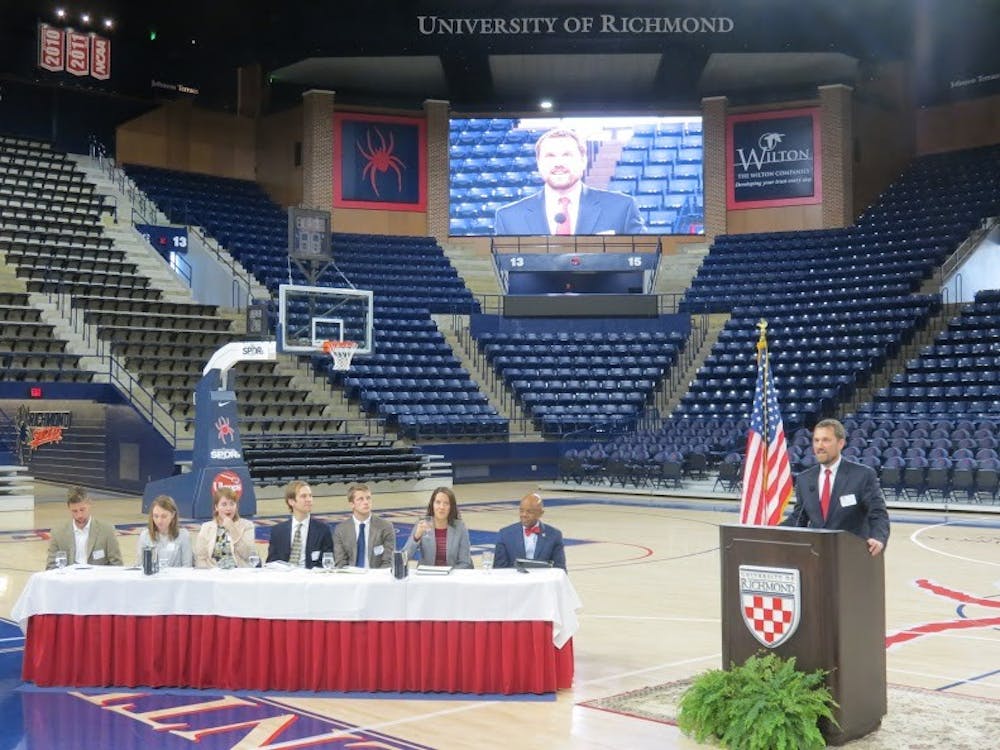University of Richmond and Virginia Commonwealth University partnered on Friday to present the Virginia Power Dialog, one of a nationwide series of events initiating discussion between college students and state environmental regulators.
The Power Dialog, an organization coordinated by the Center for Environmental Policy at Bard College, seeks to engage college students from every state with the environmental officials in that state. The topic of each dialog is the Obama administration’s Clean Power Plan (CPP). Under the plan, each state is required to establish a plan to aid the United States' commitment to a 30 percent reduction in emissions.
Power Dialogs allow students to add their voice to a conversation of the CPP that was not previously there, Rob Andrejewski, director of sustainability, said.
“How do you connect the people that are going to be impacted most by climate change, which are our youngest people, with the regulators who are going to be making these decisions?” Andrejewski said. “This is how.”
The Virginia Power Dialog began at VCU Friday morning with a discussion of the Clean Power Plan with environmental administrators from the Department of Environmental Quality (DEQ), Secretary of Natural Resources and the Air Division of the Virginia DEQ.
The Dialog continued at Richmond in the Robins Center with a forum between student representatives from eight Virginia colleges and one high school and the administrators. A poster presentation of student work followed.
Despite the recent Supreme Court stay of the CPP, most of the conversation was focused on the plan and how it will affect Virginia. One student representative questioned how to encourage clean energy in areas that are economically reliant on traditional methods of power production, like the Virginian southwest.
While the Dialog may not result in tangible outcomes, it allowed student representatives to meet people on a level playing field and engage in true conversation, Andrejewski said.
Kristine Grayson, assistant professor of biology, said the student voice was clearly heard at the Dialog.
“I thought, at the panel, it was really interesting to hear students often don’t feel like their voices are heard when it comes to state officials,” Grayson said. “I think just getting those two voices in the same room is what this event was about [Friday].”
Although she considered student attendance to be low, Mary Finley-Brook, associate professor of geography and the environment, said she thought the dialog was successful.
“Our goal was education conversation, dialogue and networking,” Finley-Brook said. “All of that happened.”
Contact news writer Ashlee Korlach at ashlee.korlach@richmond.edu.

